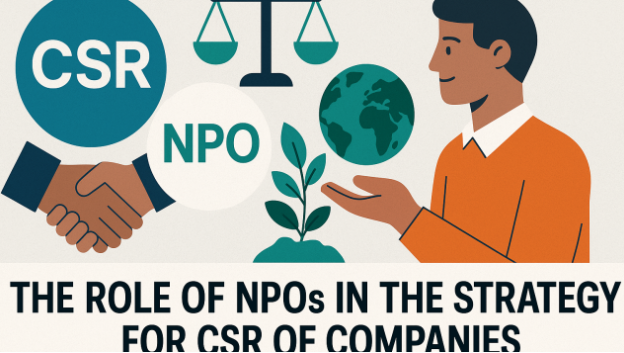Leonardo Cunha
Liderança | Empreendedorismo | Gestão | Planeamento | Estratégia | Escrita para Financiamento | Especialista em financiamento para desenvolvimento | Orador internacional
13 de setembro de 2025
Corporate Social Responsibility (CSR) has moved beyond being a mere add-on to business strategy. In an era of heightened public scrutiny, stakeholders increasingly demand that companies act not only in pursuit of profit but also in ways that generate meaningful social and environmental impact. Non-Profit Organisations (NPOs) have emerged as essential partners in this shift, offering legitimacy, expertise, and community connections that companies often lack.
Yet, the incorporation of CSR into corporate agendas has too often been misused as a marketing tactic. The practice of “greenwashing”—presenting a misleading image of environmental or social responsibility without substantive action—remains widespread (Delmas & Burbano, 2011). Such strategies not only undermine trust but also damage long-term credibility with stakeholders. CSR should not be a veneer for business as usual; it should reflect a deeper alignment between companies and the civil society actors that represent the voices of communities.
NPOs play a critical role in ensuring that CSR transcends superficiality. They bring proximity to social realities, long-standing experience in community engagement, and an accountability framework that challenges companies to commit to more than symbolic gestures. As Porter and Kramer (2011) argue in their concept of “shared value”, companies can create economic value in a way that also produces value for society by addressing its needs and challenges. In this sense, NPOs serve as both catalysts and watchdogs, guiding firms towards authentic engagement rather than cosmetic commitments.
Research demonstrates that partnerships between businesses and NPOs can strengthen both parties: firms enhance their social legitimacy, while NPOs gain access to resources, networks, and platforms to scale their impact (Seitanidi & Crane, 2009). However, such partnerships must be based on reciprocity and co-creation rather than transactional philanthropy. When companies treat CSR merely as a compliance exercise, they miss the transformative potential of these alliances.
A robust CSR strategy requires moving away from paternalistic models of corporate giving towards collaborative approaches that embed social responsibility into core business processes. This involves integrating NPOs into strategic decision-making, not as peripheral beneficiaries but as equal partners. By doing so, companies can ensure their CSR programmes address genuine social needs, while society benefits from sustainable and credible initiatives.
The future of CSR lies in authenticity, accountability, and collaboration. NPOs hold the key to unlocking this potential, providing the expertise and legitimacy that corporations alone cannot achieve. Companies that embrace this partnership not only strengthen their social licence to operate but also contribute meaningfully to building resilient, just, and sustainable communities.
References
Delmas, M. A., & Burbano, V. C. (2011). The Drivers of Greenwashing. California Management Review, 54(1), 64–87. https://doi.org/10.1525/cmr.2011.54.1.64
Porter, M. E., & Kramer, M. R. (2011). Creating Shared Value. Harvard Business Review, 89(1/2), 62–77.
Seitanidi, M. M., & Crane, A. (2009). Implementing CSR through Partnerships: Understanding the Selection, Design and Institutionalisation of Nonprofit–Business Partnerships. Journal of Business Ethics, 85(2), 413–429. https://doi.org/10.1007/s10551-008-9743-y


